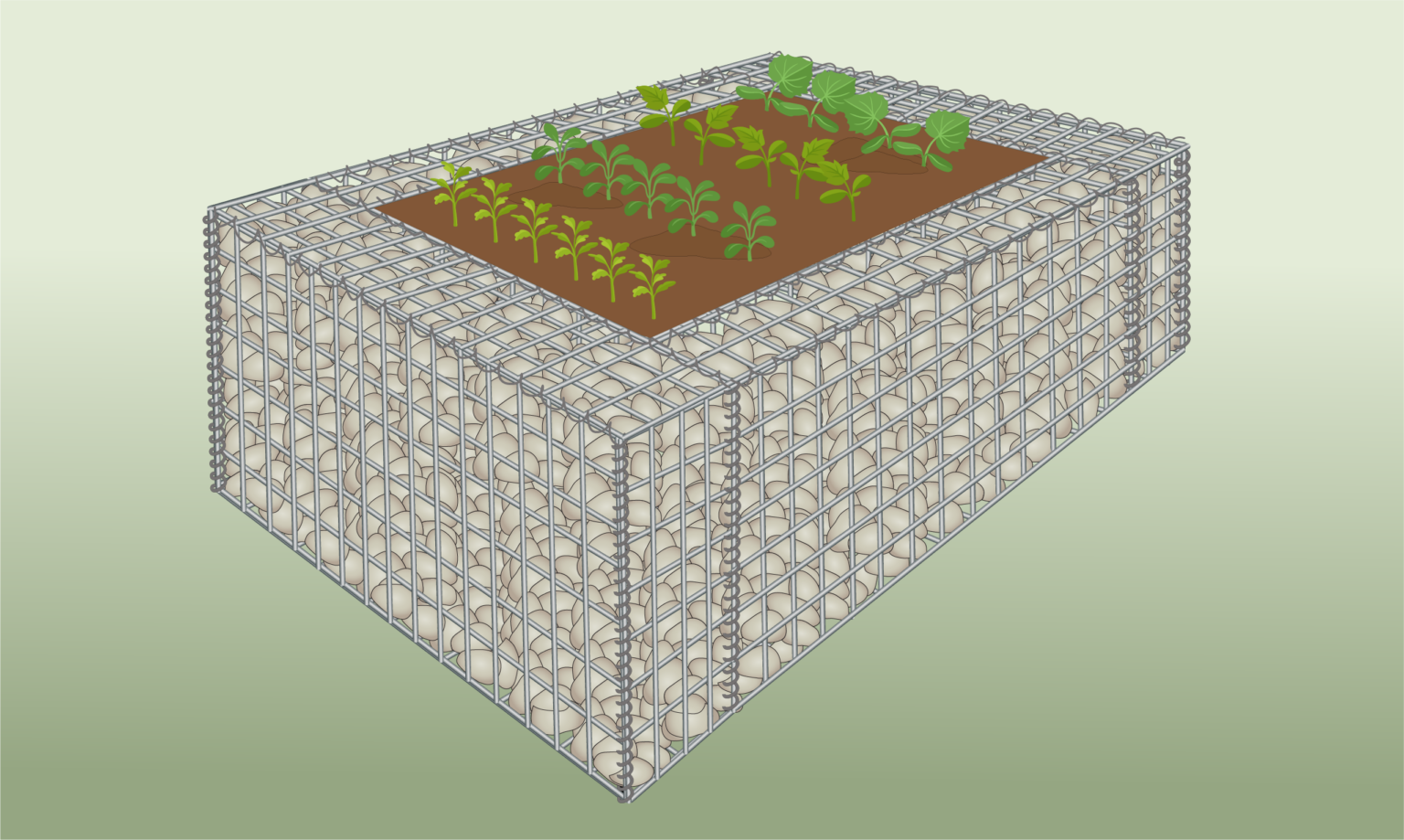How to Build a Gabion Raised Bed
Below is a step by step guide on how to build a gabion raised bed.
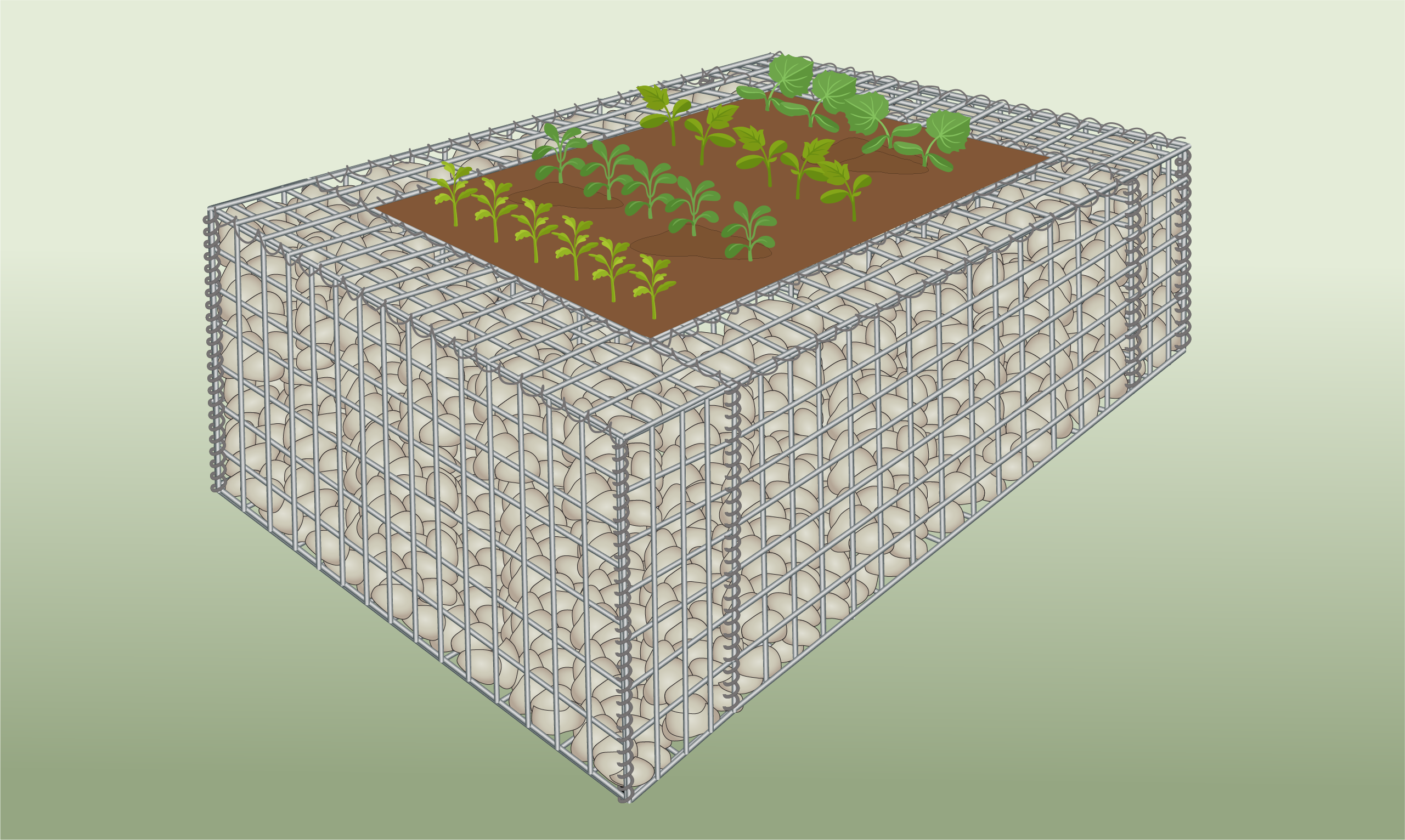
- Tools Required: Protective gloves, Tape measure, Wire cutter, Plier
- Materials Required: Gabion baskets, Geotextile, Stone, Helicals, Tying wire, Soil
Step 1) Measure Your Space
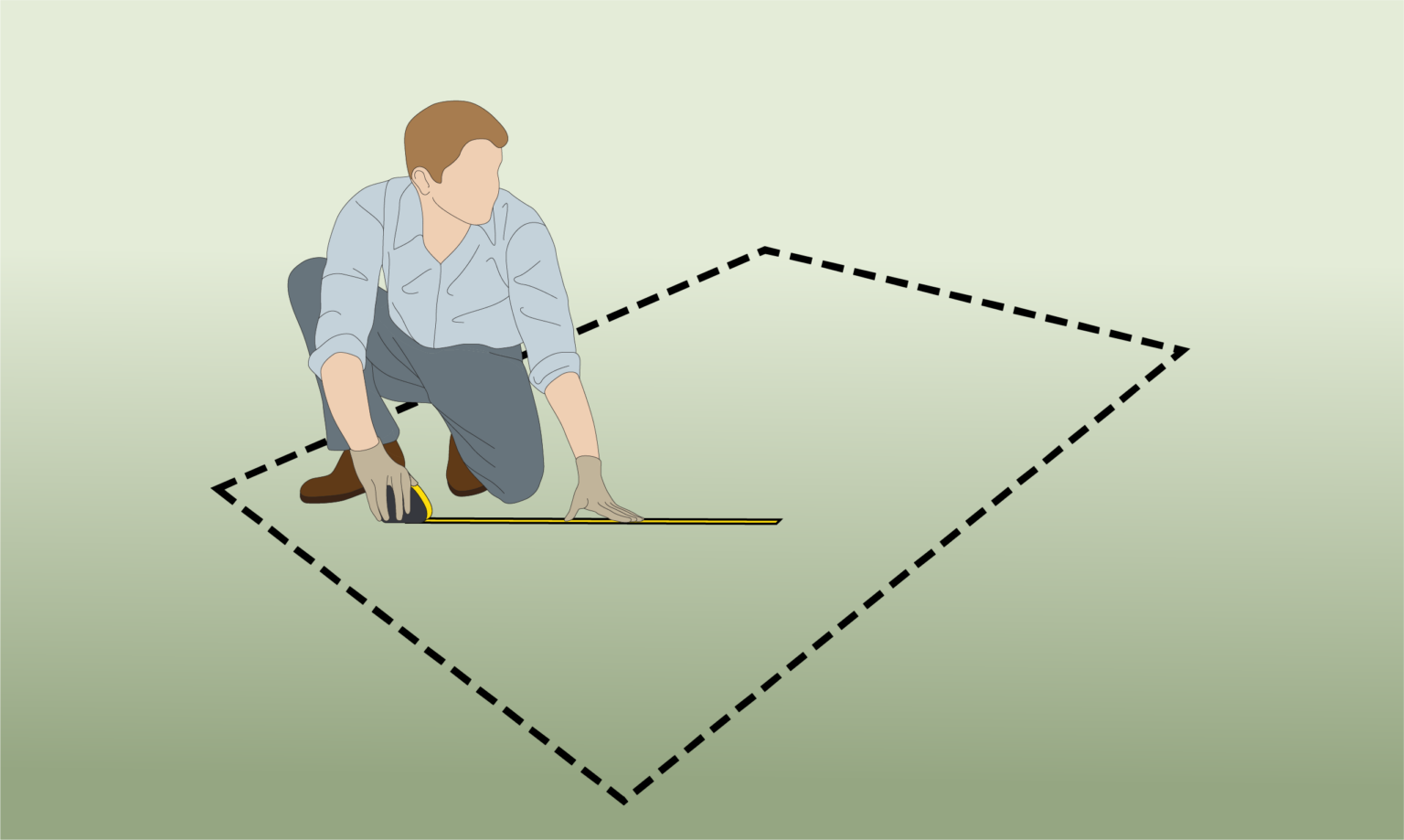
- Measure the space where you plan to place your raised bed.
- Position it in direct sunlight, near the kitchen, or close to daily activities for convenience.
- Ensure the ground is level by digging out high spots or adding paver sand or gravel to raise lower areas.
Step 2) Draw a Plan with Measurements
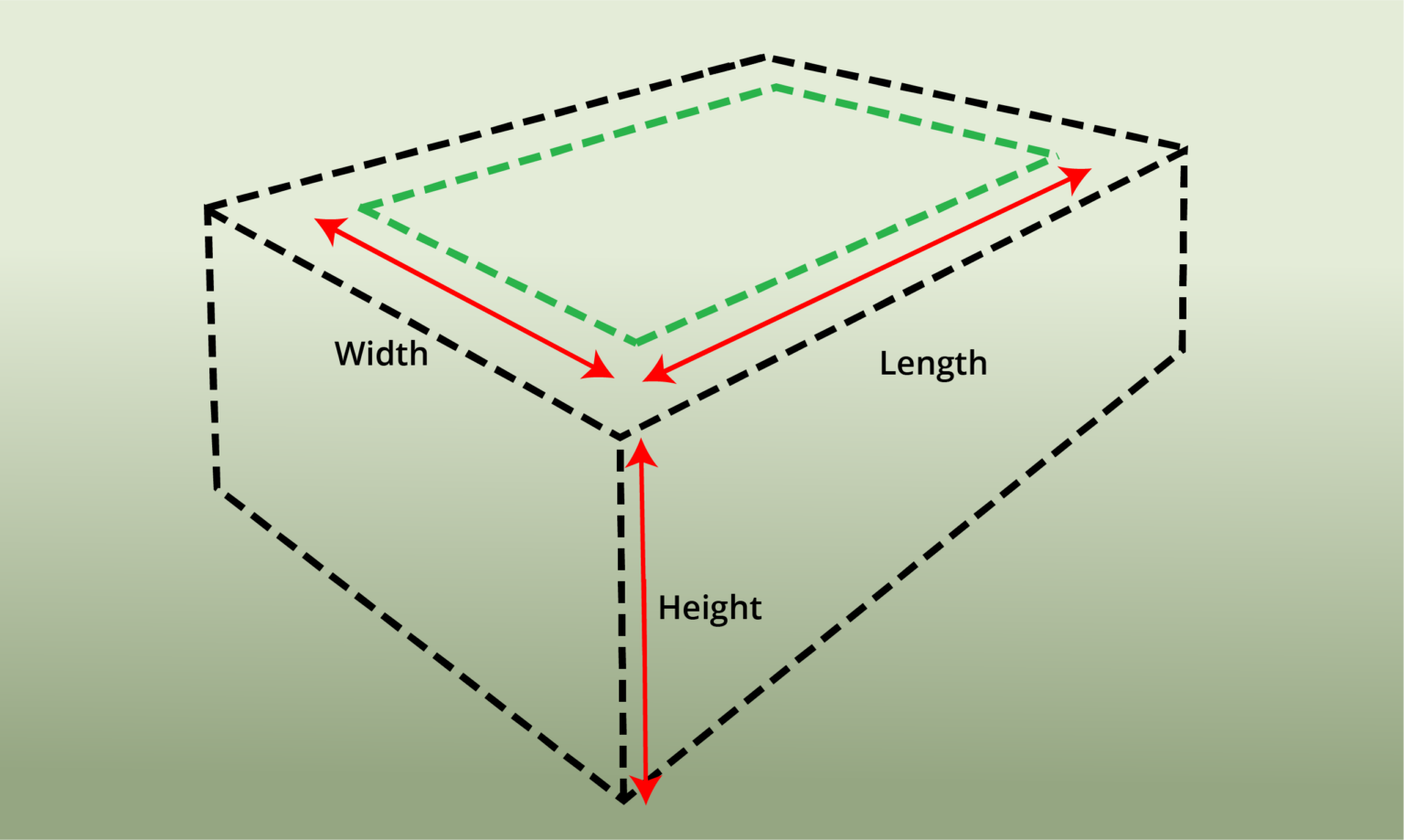
- The general dimensions for a raised bed are a width of 45cm to 1.2m and a length of 1.2m to 3m.
- The depth should be at least 45cm to accommodate the root balls of kitchen garden plants.
- Adjust based on your preferences and the specific needs of your plants.
Step 3) Calculate What You’ll Need
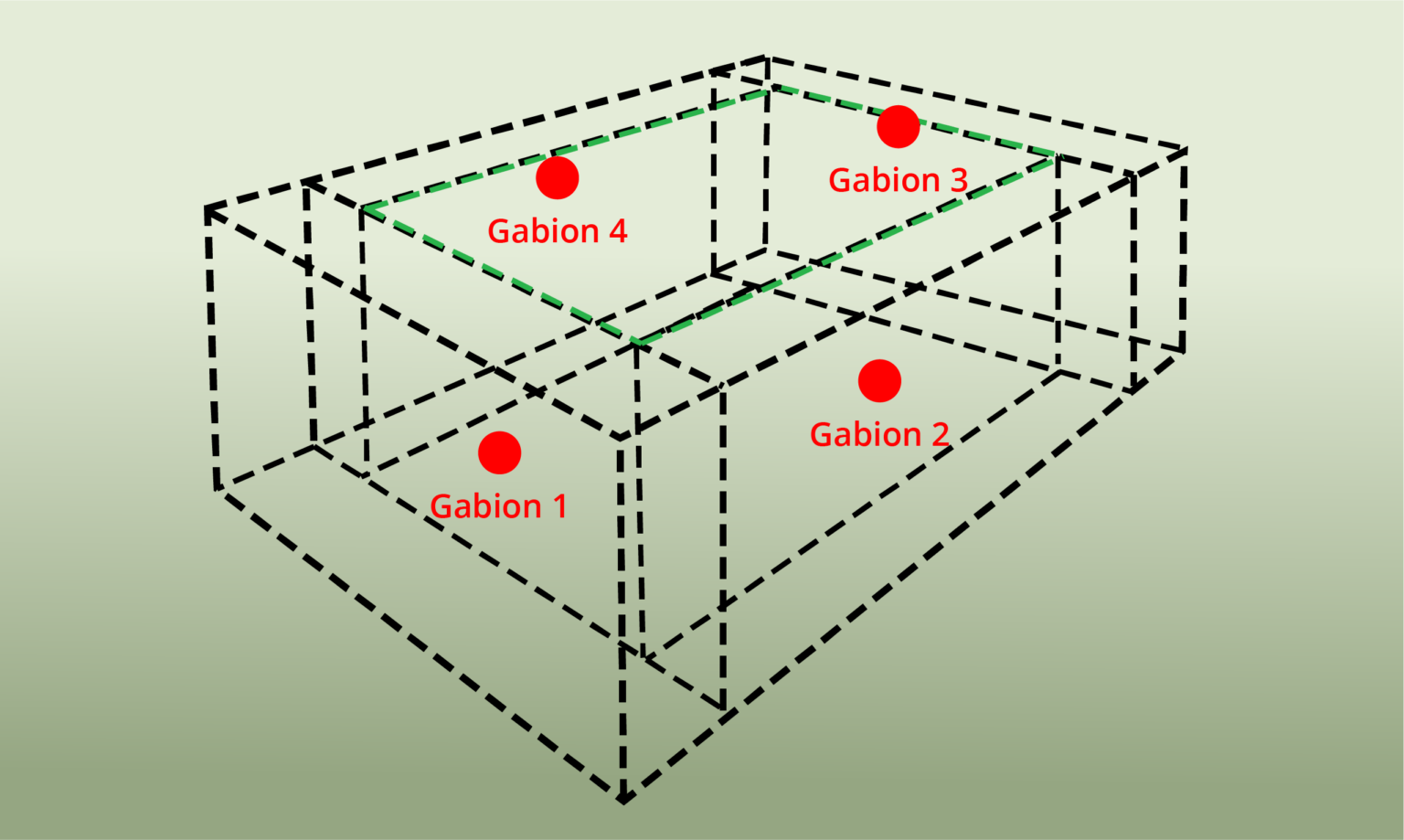
- In the process of how to build a gabion raised bed, calculate how many baskets you will need for your structure.
- Additionally, determine the amount of helicals and stones required for your project.
Step 4) Assemble Baskets Without Lids
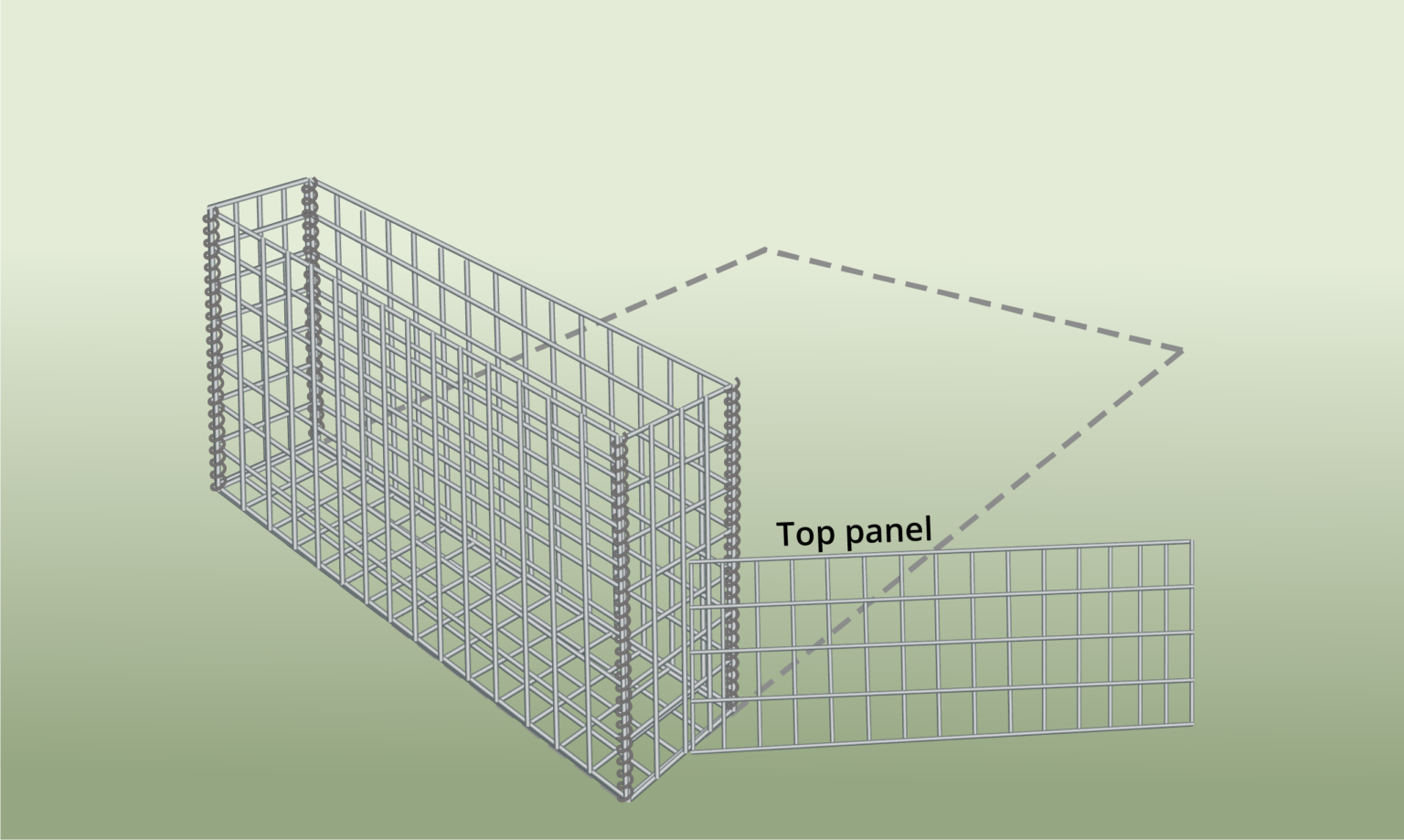
- Start assembling the gabions required for your structure.
- At this stage, avoid securing the lid panel so you can fill the gabions with stones.
- Alternatively, you can remove the lid and set it aside for later use.
Step 5) Place in Final Location
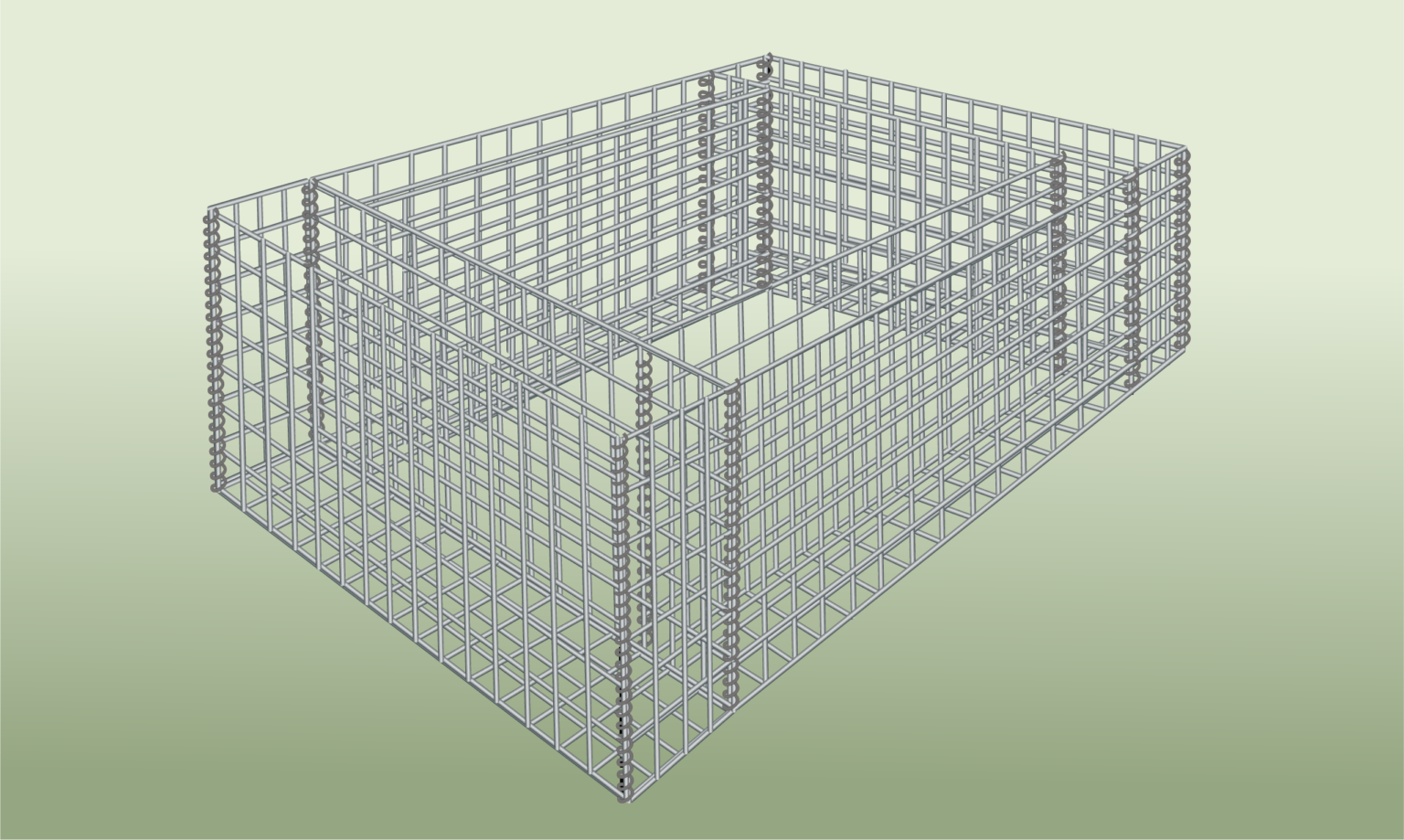
- Position the gabions in their final location, ensuring the adjoining corners are pushed together as closely as possible.
Step 6) Attach Baskets Together
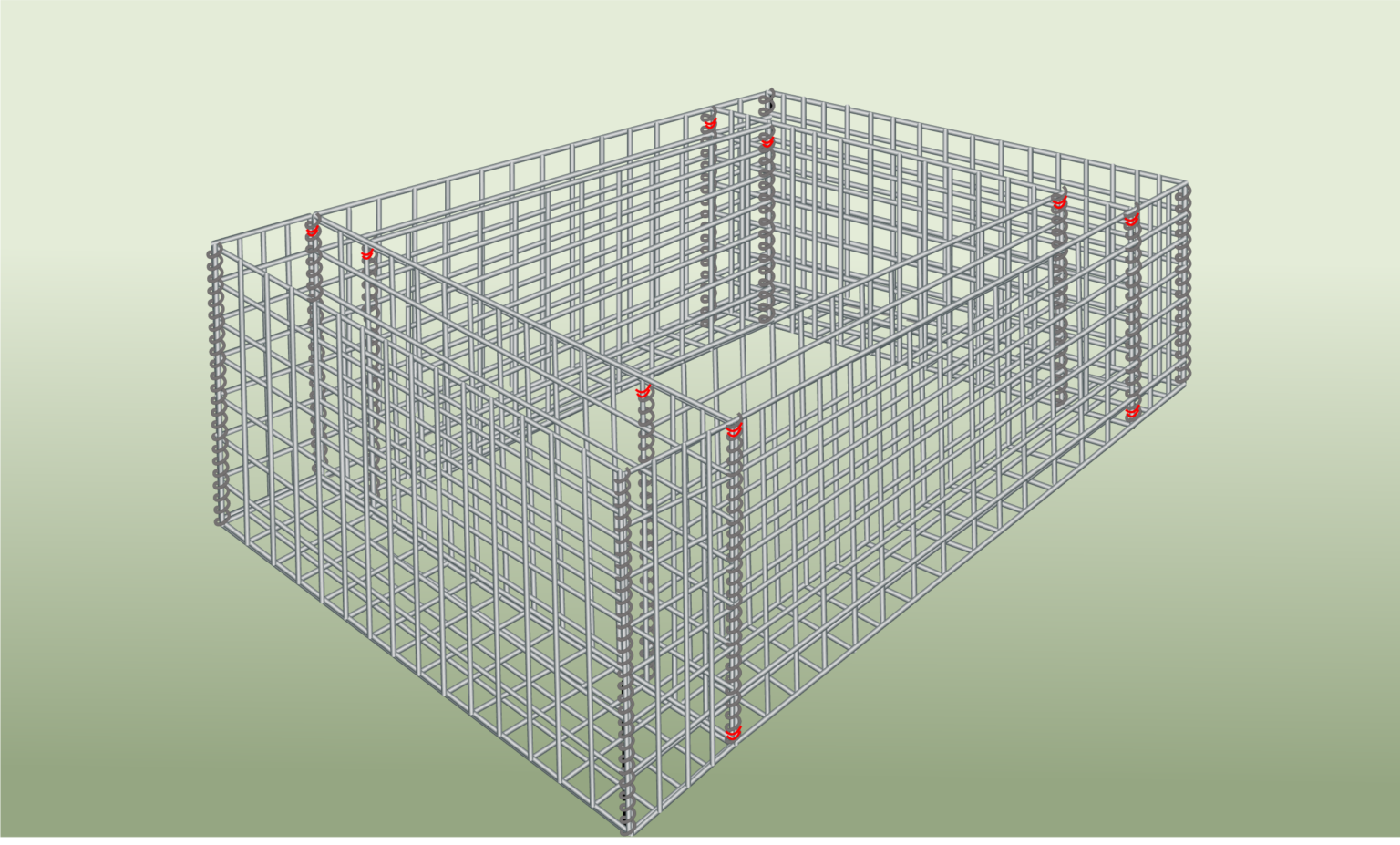
- To prevent any movement, secure the adjoining corners of the baskets at both the top and bottom with a piece of tying wire.
Step 7) Cut Off Excess
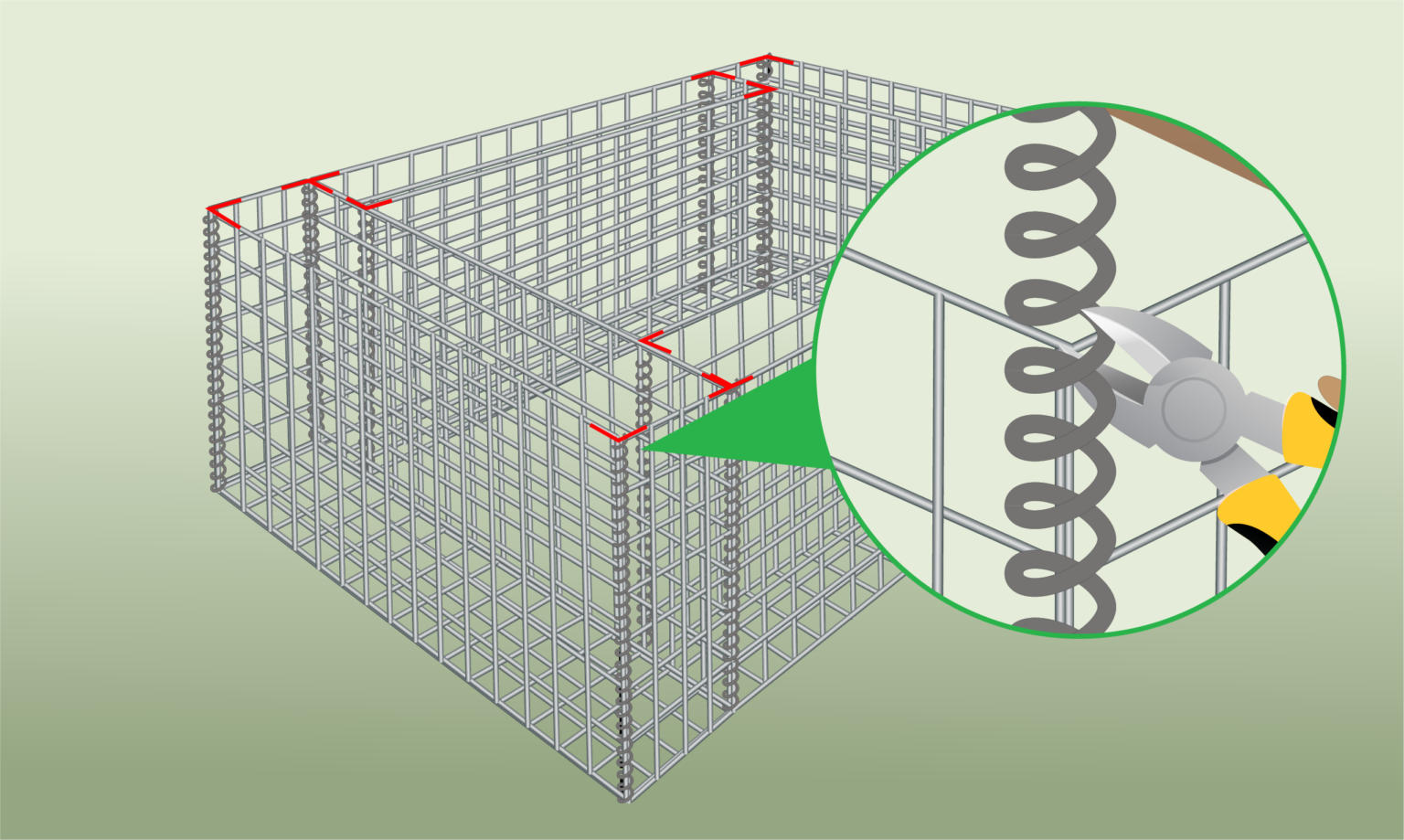
- Cut off any excess length of helical or tying wire as needed using wire cutters.
- Then, use pliers to pinch each end of the helical wire to secure it and prevent it from slipping out.
Step 8) Fill with Stone
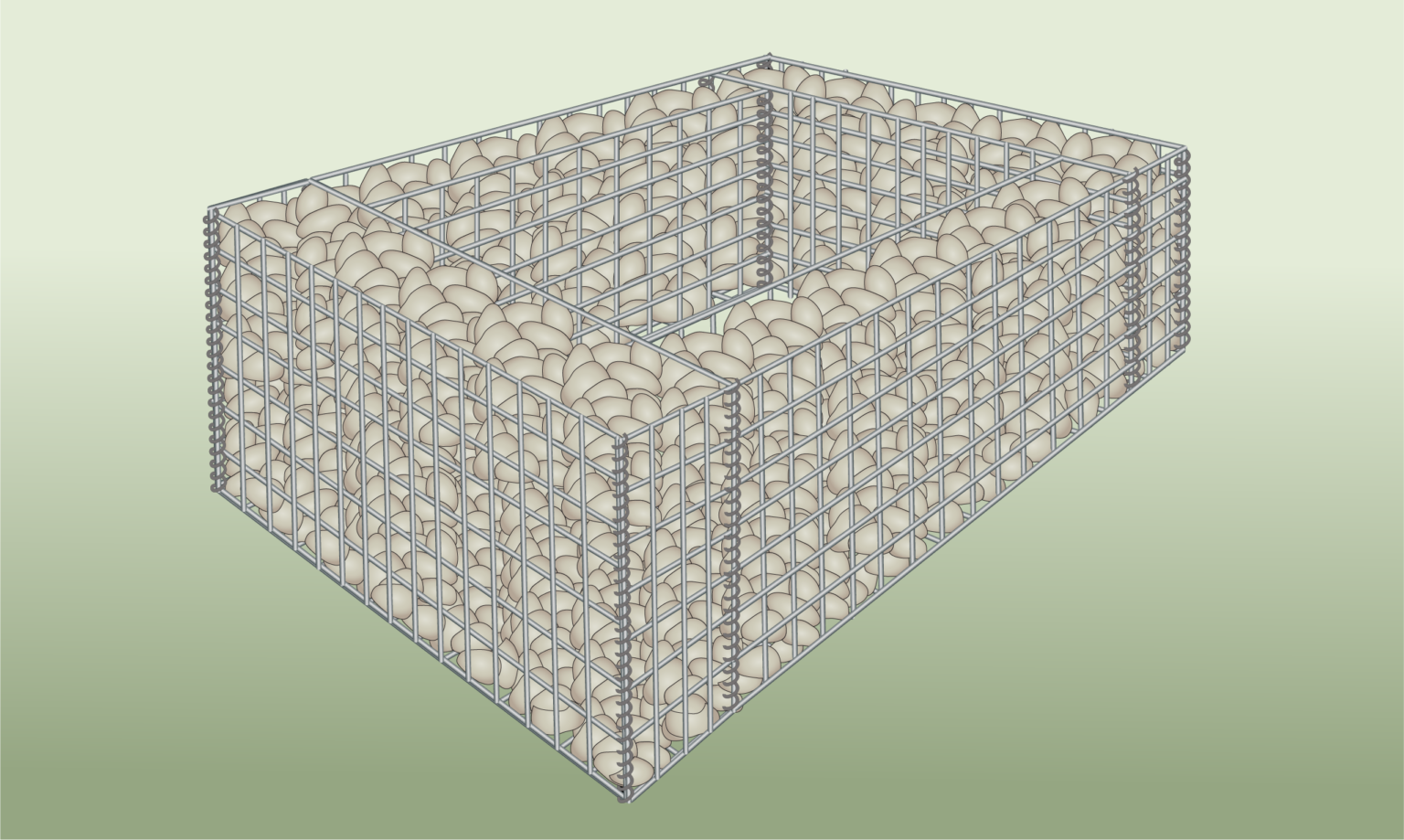
- Fill each basket with the amount of stones you’ve calculated.
Step 9) Secure the Lids
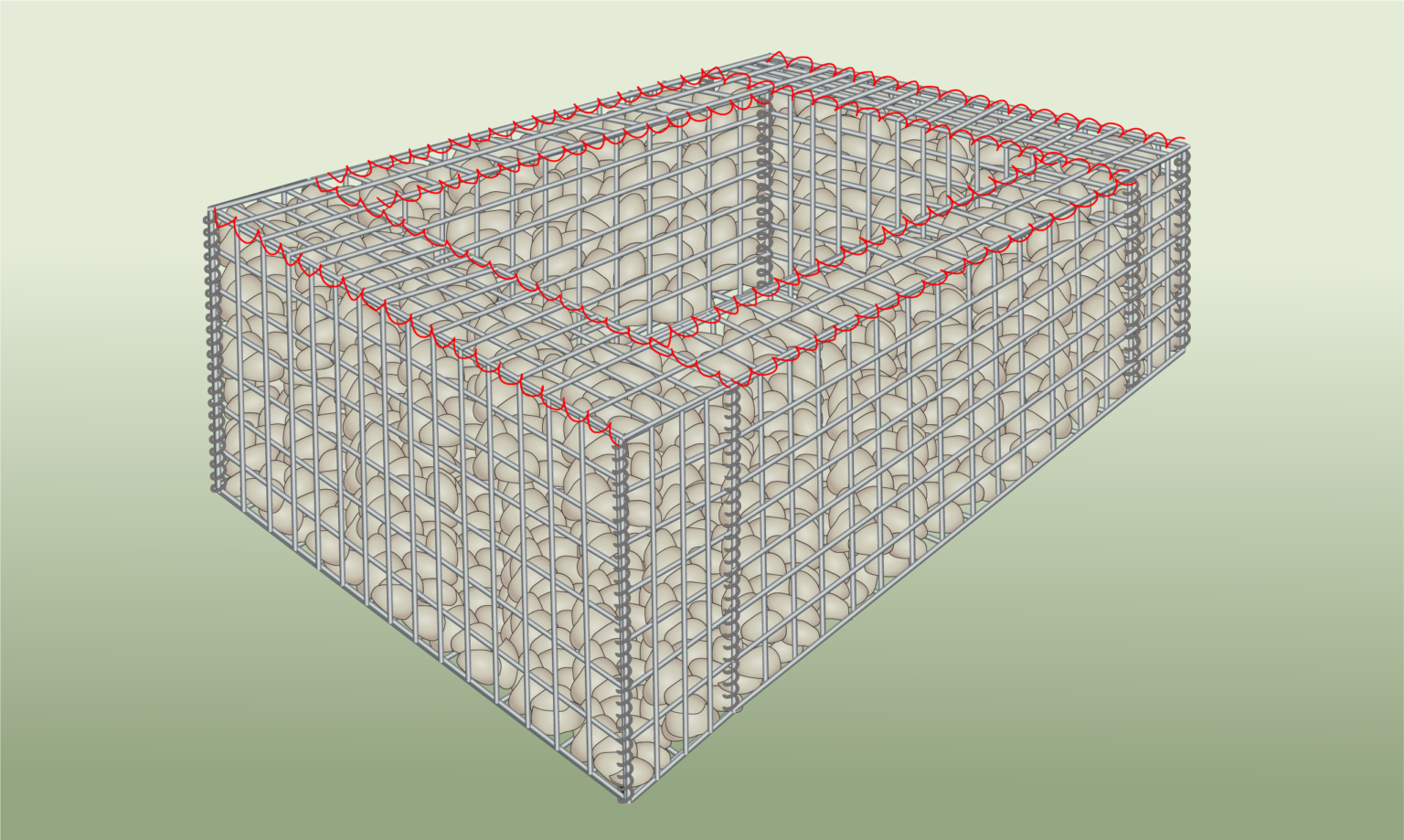
- Secure the lids using tying wire at both the front and back.
- Make sure they rest comfortably on the stones without any gaps.
Step 10) Add Geotextile
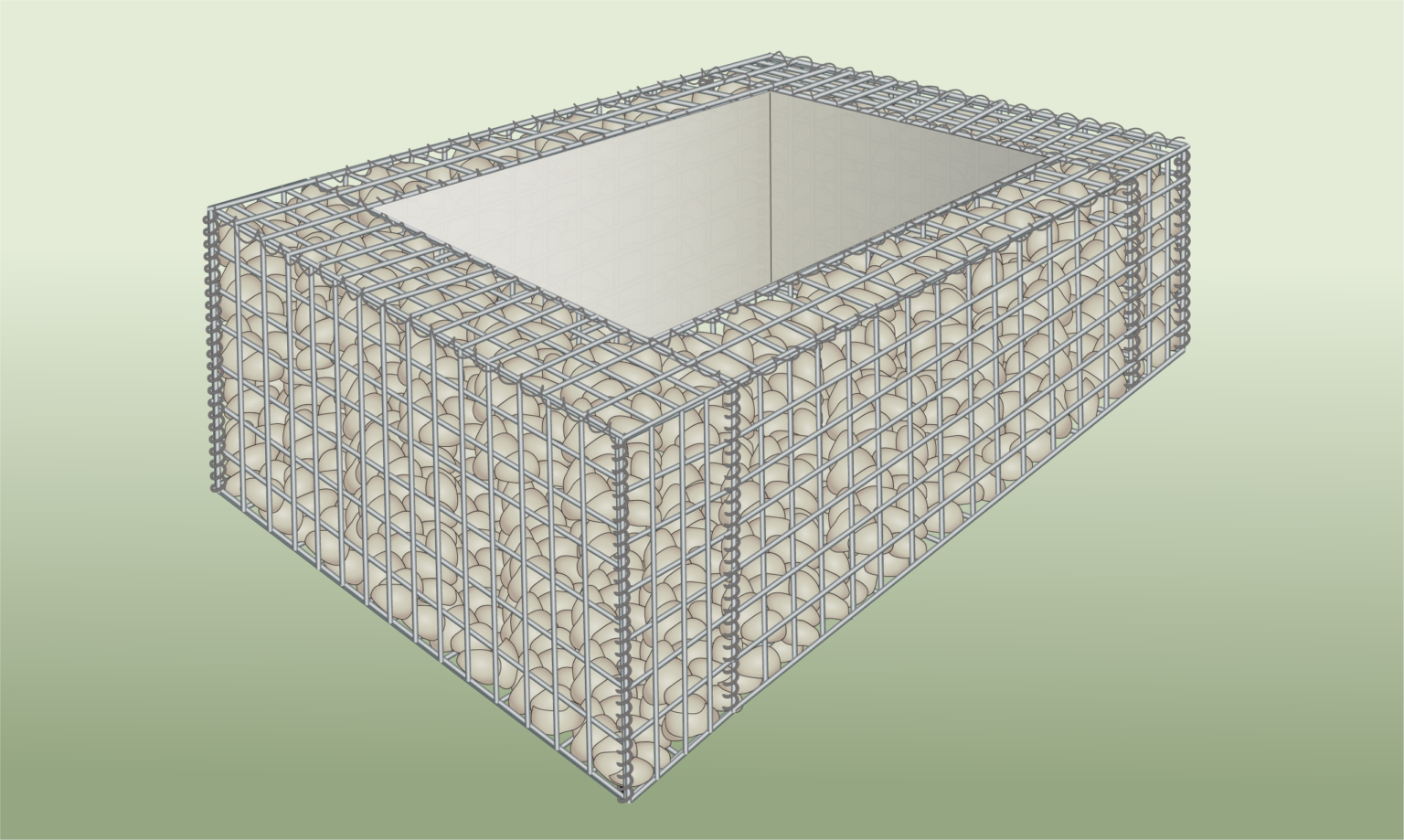
- The inner side of your structure should be covered with geotextile to prevent soil and roots from pushing their way through the stones.
Step 11) Fill with Soil
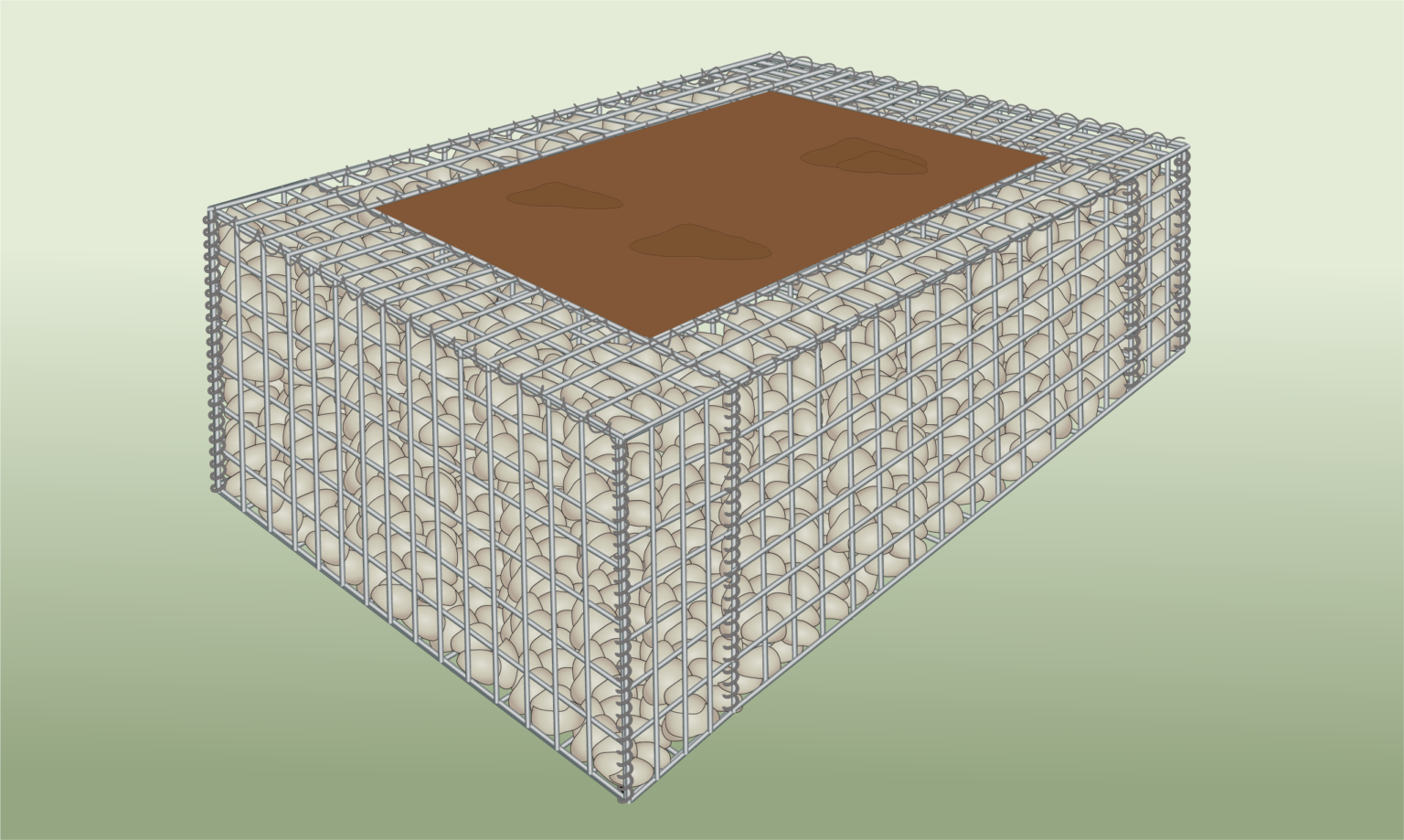
- Fill the inner side with a fertile, free-draining soil mixture.
- Finally, you can use a rake to level the soil.
Step 12) Start Planting
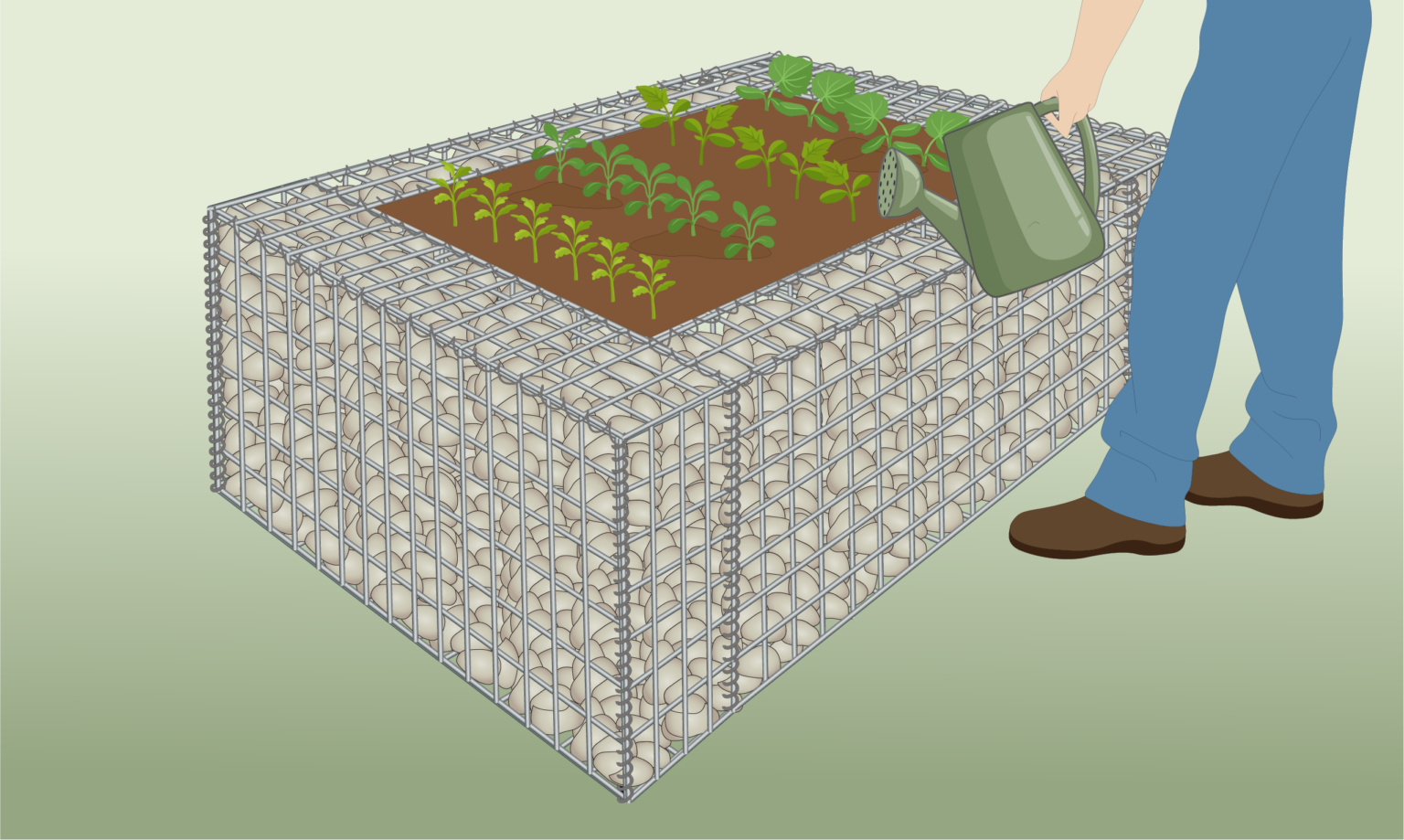
- You can now begin planting in your diy planters and look forward to enjoying the fruits and vegetables!
Pros and Cons
- Healthy, nutrient-rich soil for a fresh start.
- Soil in raised beds stays warmer, allowing for a longer growing period.
- Greater vertical space gives roots room to spread and grow deeper.
- Faster drainage means you’ll need to water more often to maintain moisture levels.
Tips and Tricks
- When planning how to build a gabion raised bed, get creative with the design. Mix and match different colored stones, or experiment with the form and shape of the bed itself.
- Instead of long, continuous beds that can be tricky to manage, consider using several smaller ones for easier maintenance.
- Place the bed in a location that gets at least 6 hours of direct sunlight daily, preferably on the south side of taller structures like fences or trees.
- Ensure the bed is positioned on level ground for optimal setup.
- You can calculate how much stone you’ll need using our stone calculator.
FURTHER READING
- How to Assemble Gabion Baskets – Step by step instructions on how to assemble baskets.
- DIY Round Gabion Planter – A guide showing you how to create a diy round planter.
- DIY Gabion Planter – Learn how to make your own diy planter.
- How to Fill Gabions – Learn how to fill cages using different methods.

